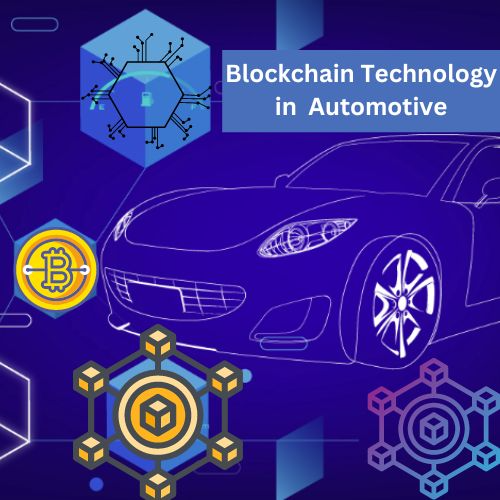Future-era Automobiles have long since made the transition from our imagination to the real world. No clear solutions have emerged from high-profile successes and failures. Too many issues remain as manufacturers consider the industry’s future. For one thing, businesses continue to ignore the environment in which they operate and focus solely on their vehicles. However, blockchain development could be added to the mix as a viable, real-time method of storing and exchanging data. Continue reading to find out how blockchain will impact the automotive industry.
Blockchain Advantages in Automotive Industry
Blockchain speeds up data distribution. Self-driving cars need to constantly be mindful of their surroundings, their own condition, and the status of other vehicles. Traditional IoT communication systems make this process more difficult. Because of the blockchain’s decentralized ledger, every node has instant and accurate access to all data. Companies are working to integrate improved vehicle monitoring and communication to increase total connectivity. The first step in creating a secure autonomous ecosystem is decentralized networks, which allow easier data transmission to all locations.
5 Blockchain Impacts on the Automotive Industry
- Payment Protection
Blockchain gained notoriety as the technology that powers digital currencies like Bitcoin, and this is still the technology’s most well-liked use. Drivers of electric vehicles may soon be able to use blockchain to pay for the electricity used to charge their vehicles. Think about what would happen if the act of charging your car triggered a blockchain contract that transferred the necessary funds from your bank to the charging station. Your insurance, monthly parking fee, and any other payments you make for your car could all be impacted.
- Protected Autonomous Data
The blockchain could be used to record the details of a self-driving car’s journey as it travels around the world. This information related to localization may include information regarding facilities, roads, and general traffic flow data. Because this data was handled using blockchain technology, other cars in the network can be confident that it is reliable and secure. Manufacturers may use blockchain to safely exchange all localization data since exchanging other people’s data is the fastest way to autonomous driving. Only authorized parties could view cryptographically protected data in real time. After demonstrating how to hack an automaker’s autonomous vehicle network, blockchain will prevent “bad actors” from hacking and kidnapping OEMs.
- Decentralized Ridesharing
Uber and Lyft are two ride-hailing services that have already altered how we drive and do not drive. Using an app, you can summon a car to pick you up and take you where you need to go. Blockchain and autonomous technology may soon boost ridesharing. By removing third-party middlemen, blockchain can increase privacy and safety for passengers and drivers. For example, if payment were based on predetermined criteria and encoded in a smart card, drivers would only be paid after transporting a passenger to their destination. If a passenger cancels, the contract may compensate the driver with a small portion of the money as compensation for their time rather than imposing an arbitrary cancellation fee. Blockchain technology may change how companies like Uber operate by transferring payment and driver or rider selection processes to the unbiased, verifiable blockchain; an ecosystem-type platform could be created to eliminate middlemen. Passengers could use such a website to communicate directly with drivers, assess personal reputations, and select a driver based on price, quality, and other market factors.
- Car Sharing that is Fair and Reliable
Blockchain-based solutions not only make sharing trips easier, but they also make sharing car ownership easier. Residents of high-rise buildings, for example, may in the future share a fleet of ten cars rather than each owning a car or using other modes of transportation. The blockchain would keep track of each vehicle’s usage while it was in use, and users would use an application to request access to a car whenever they needed it. The ability of the system to instantly settle payments on any terms the owners choose, as well as the encrypted nature of blockchain, would result in greater convenience for all parties.
- Managing the Supply Chain
The transparency of distributed ledgers in automotive software companies may help to ensure that suppliers, production, and shipping can all see the same supply chain, making it nearly impossible to install fake parts. Furthermore, multiple blockchains could be used to manage the massive amounts of data that automotive manufacturers and distributors generate and monitor on a daily basis: one blockchain could contain bills of lading for vehicle components, another could contain quality-inspection records created during the manufacturing process, and yet another could store WIP data for each assembly line from start to finish. Manufacturing blockchains may also use smart contracts to release sales orders at specific production cycle points automatically. Contracts could be automatically awarded to the provider with the most inventory on hand, improving supply chains.
Conclusion
Because blockchain is a certain and distinct type of encryption, it has the potential to be one of the key technologies that enable the auto industry to join the new generation of smart vehicles. Blockchain can transform how information is managed in future automobiles, whether by protecting financial data or increasing the credibility of collective ownership.








